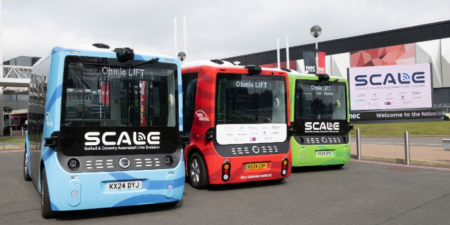The Netherlands will become the latest country to permit the testing of self-driving or autonomous vehicles (AVs) on public roads. Following the proposal of Melanie Schultz van Haegen, Minister of Infrastructure and the Environment, the country’s Council of Ministers have approved an amendment of the regulations to enable large-scale tests of self-driving cars and trucks on public roads. The Cabinet aims to have the Netherlands play a leading role in the development of AVs and systems enabling ‘connected’ vehicles to communicate with one another (V2V) and with traffic control centers (V2I). The Netherlands has a suitable infrastructure and, with technical institutes and the automotive sector, the knowledge required to facilitate tests with self-driving vehicles. The Netherlands Government sees connected vehicles having the long-term benefit of improving traffic flow across the country, due to their ability to simultaneously accelerate or decelerate and drive in close convoys or ‘platoons’, thereby increasing use of the available road-space.
As well as traffic safety benefits, the Netherlands sees AVs being more fuel-efficient, boosting the country’s environmental agenda .The adopted amendment of the regulations will authorize the RDW (Rijksdienst voor het Wegverkeer), the country’s national road traffic agency, to grant exemption for large-scale test drives on public roads. Various parties have already expressed their interest in conducting test drives on Dutch roads. The Netherlands Organization for Applied Scientific Research (TNO) knowledge institute is preparing a test with autonomous trucks in collaboration with truck manufacturer DAF, the Rotterdam Port Authority, and the Dutch Association for Transport and Logistics (TLN). The Province of Gelderland and the Wageningen University & Research Center are also exploring the possibilities for self-driving vehicles in the Food Valley area.
The Netherlands plans follow a similar announcement from the German Government a few weeks ago that proposes a driverless-car pilot project on a portion of the A9 autobahn that connects Munich and Berlin. Although driverless cars have already been tested in Germany, the project would be one of the first to equip a stretch of public highway specifically for that purpose. The German project would also enable vehicles driving on the test section of the autobahn to communicate with each other, as well as with the infrastructure itself. The government has not yet announced exactly where and when the autobahn will be retrofitted with testing sensors, measuring systems and vehicle communications equipment. Transportation Ministry spokesman, Ingo Strater, said, “The German auto industry has recognized that this field is developing. We want to support that. The goal is to network the road and the vehicles to reduce traffic jams and increase road safety.”




